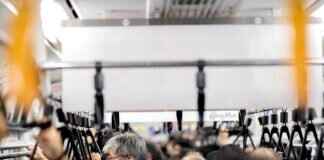This article delves into the intricate financial and legal aspects surrounding the reversal of an adoption. Understanding the potential costs, processes, and various factors influencing the overall expenses is crucial for anyone contemplating this complex legal procedure.
Understanding Adoption Reversal
The process of reversing an adoption is a significant legal undertaking that can arise from various circumstances. This section aims to clarify what adoption reversal entails and the scenarios that may necessitate such a decision. Adoption reversal is typically pursued when the adoptive parents or biological parents believe that the adoption is no longer in the best interest of the child. This can occur due to changes in family dynamics, parental rights issues, or even allegations of fraud during the adoption process.
Legal Grounds for Adoption Reversal
There are several legal grounds upon which an adoption can be reversed. These grounds include parental rights issues, fraud, and substantial changes in circumstances. Understanding these factors is vital for navigating the legal landscape of adoption reversal.
- Parental Rights Issues: Violations of parental rights can lead to a reversal. For instance, if it is found that the biological parents were not adequately informed or coerced into giving up their rights, the court may consider reversing the adoption.
- Fraudulent Adoption Practices: If fraud is discovered, such as misrepresentation of the child’s background or the adoptive parents’ qualifications, the adoption can be contested and potentially reversed.
- Changes in Circumstances: Significant life changes, such as the death of an adoptive parent or a major shift in the biological parent’s situation, can prompt a reconsideration of the adoption.
The Financial Implications of Reversing an Adoption
Reversing an adoption is not only a legal challenge but also a financial one. The costs associated with this process can vary significantly based on several factors, including legal fees and court costs.
Legal Fees and Court Costs
The legal fees involved in reversing an adoption can vary widely. On average, individuals may expect to pay anywhere from $5,000 to $20,000 depending on the complexity of the case. This includes attorney fees, filing fees, and other court-related costs. It is essential to consult with a legal expert to obtain an accurate estimate based on individual circumstances.
Additional Expenses
In addition to legal fees, there are other expenses that may arise during the reversal process. These can include:
- Counseling Services: Emotional support for all parties involved can be crucial, leading to additional costs.
- Expert Witness Fees: In some cases, expert testimony may be required to substantiate claims.
- Travel Costs: If court appearances or consultations require travel, these expenses can add up.
Factors Influencing the Cost of Reversal
Several factors can significantly influence the overall cost of reversing an adoption. Understanding these elements can help individuals better prepare financially for the process.
- State-Specific Laws: Each state has its own laws governing adoption and its reversal, which can affect both the legal process and associated costs.
- Complexity of the Case: Cases that involve multiple parties or contested issues tend to be more expensive due to the additional legal work required.
Emotional and Psychological Costs
While financial implications are significant, the emotional toll of reversing an adoption cannot be overlooked. This decision affects not only the adoptive parents and the child but also the biological parents.
Impact on All Parties Involved
The emotional impact of adoption reversal can be profound. Counseling and support systems are often necessary to navigate the feelings of loss, guilt, and confusion that can arise.
Long-Term Psychological Effects
Reversing an adoption can lead to long-lasting psychological effects for all parties involved. It is crucial to seek mental health support to address these challenges effectively.

Understanding Adoption Reversal
Understanding the intricacies of adoption reversal is essential for anyone considering this complex legal process. Adoption is designed to create a permanent family bond, but there are circumstances where the reversal may be necessary. This section delves into what adoption reversal entails, the emotional weight it carries, and the various situations that may prompt a reconsideration of an adoption.
What is Adoption Reversal?
Adoption reversal refers to the legal process through which an adoption is undone, reinstating the biological parental rights or allowing the child to return to their biological family. This process can be emotionally charged and legally intricate, often requiring the intervention of the court system. The reasons for pursuing a reversal can vary widely, from changes in the biological parents’ circumstances to issues of fraud or coercion during the original adoption process.
Why Might Adoption Reversal Occur?
- Parental Rights Issues: In some cases, biological parents may regain their rights if the adoption was not conducted legally or if their consent was obtained under duress.
- Fraudulent Practices: If an adoption was based on fraudulent information or misrepresentation, the affected parties may seek a reversal.
- Changes in Circumstances: Significant life changes, such as the biological parent becoming financially stable or capable of providing a safe environment, can also lead to a reversal.
The Emotional Impact of Adoption Reversal
The decision to reverse an adoption can be a heart-wrenching one, affecting not just the adoptive parents and the child but also the biological parents. The emotional ramifications can be substantial, leading to feelings of loss, guilt, and confusion. It’s crucial for all parties involved to seek counseling or therapy to navigate these complex emotions. Understanding that the process can bring both relief and distress is vital for everyone affected.
Legal Considerations in Adoption Reversal
Engaging in an adoption reversal is not merely a matter of personal choice; it involves legal proceedings that can be lengthy and expensive. Each state has its own regulations regarding adoption and its reversal, making it essential to consult with a legal expert familiar with local laws. The legal process may include filing petitions, attending court hearings, and possibly undergoing mediation sessions.
In summary, understanding adoption reversal is crucial for anyone involved in or contemplating this complex process. It is a legal and emotional journey that requires careful consideration and support from professionals and loved ones. By being informed about the reasons, emotional impacts, and legal implications, individuals can make better decisions that align with their needs and the best interests of the child.

Legal Grounds for Adoption Reversal
Reversing an adoption is a complex and sensitive legal process that can arise from various circumstances. Understanding the legal grounds for adoption reversal is crucial for all parties involved. This section delves into the different scenarios that may justify the reversal of an adoption, including parental rights issues, fraudulent practices, and significant changes in circumstances.
- Parental Rights Issues: One of the most common grounds for reversing an adoption is related to parental rights. Situations may arise where the biological parents contest the adoption, claiming that their rights were violated. For instance, if a birth parent was not adequately informed about the adoption process or if their consent was obtained under duress, these circumstances can provide a basis for a legal challenge. The court will carefully examine the evidence to determine if the rights of the biological parents were upheld during the adoption process.
- Fraudulent Adoption Practices: Fraud can significantly undermine the integrity of the adoption process. If it is discovered that the adoption was based on fraudulent information—such as misrepresentations regarding the child’s background or the adoptive parents’ qualifications—this can lead to a reversal. Courts take allegations of fraud seriously, and the legal implications can be extensive, often requiring thorough investigations and legal representation.
- Neglect and Abuse Claims: Claims of neglect or abuse against the adoptive parents can also serve as a valid reason for an adoption reversal. If evidence surfaces that the child is not in a safe and nurturing environment, the court may intervene to protect the child’s welfare. This can involve social services investigations and legal proceedings to ensure that the child’s best interests are prioritized.
- Changes in Circumstances: Life is unpredictable, and significant changes in circumstances can impact the validity of an adoption. For example, if a biological parent experiences a substantial life change—such as regaining stability after a period of hardship—they may seek to reclaim their parental rights. The court will assess the new circumstances and determine whether a reversal is in the child’s best interest.
In summary, the legal grounds for reversing an adoption are diverse and can stem from various issues, including parental rights violations, fraudulent practices, and significant life changes. Each case is unique, and the legal process can be intricate, requiring careful consideration and legal guidance to navigate effectively.
Parental Rights Issues
Parental rights issues play a critical role in the adoption process, often serving as a pivotal factor that can lead to the reversal of an adoption. Understanding these issues is essential for all parties involved, as they can have significant legal and emotional repercussions. This section delves into the complexities surrounding parental rights, exploring how violations can impact the adoption process and the potential costs that may arise when addressing these concerns.
Parental rights refer to the legal rights and responsibilities that biological parents have concerning their children. In the context of adoption, these rights can become contentious, especially if they are perceived to be violated. When a biological parent’s rights are not properly terminated during the adoption process, it can lead to legal challenges and ultimately the reversal of the adoption.
When parental rights are violated, the consequences can be severe. For instance, if a biological parent can prove that their rights were not legally relinquished, they may petition the court for a reversal of the adoption. This situation often arises in cases where:
- Informed Consent Was Not Obtained: If a biological parent claims they were not adequately informed about the adoption process or their rights, this can lead to legal disputes.
- Fraud or Coercion: Instances where biological parents are misled or coerced into relinquishing their rights can serve as grounds for reversal.
- Failure to Notify: If the biological parent was not notified of the adoption proceedings, they may have a valid claim for reversal.
The financial implications of addressing parental rights issues in adoption can be substantial. Legal fees associated with reversing an adoption can vary widely based on the complexity of the case and the jurisdiction. Some potential costs include:
- Attorney Fees: Hiring an attorney experienced in family law can be one of the most significant expenses. Fees can range from hundreds to thousands of dollars, depending on the case’s complexity.
- Court Costs: Filing fees for petitions or appeals can add to the overall expense.
- Expert Witness Fees: In some cases, expert testimony may be required, further increasing costs.
In many instances, mediation can serve as a valuable tool in resolving parental rights disputes before they escalate to court. Engaging in mediation can help all parties involved reach a mutually beneficial agreement, potentially saving both time and money. Additionally, counseling services may be beneficial for biological parents, adoptive parents, and the child involved, as they navigate the emotional complexities of these situations.
Addressing parental rights issues in adoption is a multifaceted process that requires careful consideration and legal guidance. Understanding the implications of violations, the potential costs involved, and the importance of mediation can help all parties navigate this challenging landscape more effectively. It is crucial for adoptive parents and biological parents alike to be aware of their rights and responsibilities to ensure a smoother adoption process.
Neglect and Abuse Claims
can significantly impact the adoption process, potentially serving as a basis for reversing an adoption. Understanding the nuances of these claims is crucial for all parties involved. In this section, we will explore how such claims are substantiated, the legal implications, and the associated costs.
When allegations of neglect or abuse arise, they often lead to investigations by child protective services or relevant authorities. These investigations aim to determine the validity of the claims, which can stem from various sources, including:
- Witness Reports: Friends, family, or neighbors may report observed behavior that raises concerns.
- Medical Evidence: Documentation from healthcare providers indicating signs of physical or emotional harm.
- Behavioral Changes: Sudden changes in a child’s behavior, such as withdrawal or aggression, can signal issues.
Once a claim is substantiated, the legal process to reverse an adoption can begin. This process typically involves filing a petition in court, where the adoptive parents may need to defend against the allegations. Legal representation is crucial, as the stakes are high, and the emotional toll on all involved can be significant.
The legal fees associated with reversing an adoption due to neglect or abuse claims can vary widely based on several factors:
- Complexity of the Case: More complex cases involving multiple parties or extensive evidence may incur higher costs.
- Geographical Location: Legal fees can differ significantly depending on the state or region.
- Attorney Experience: Hiring a seasoned attorney may come at a premium but can be essential for navigating such sensitive matters.
In addition to legal fees, other expenses may arise during the process. These can include:
- Court Fees: Costs associated with filing petitions and other legal documents.
- Expert Witnesses: In some cases, hiring child psychologists or social workers to testify can add to the expense.
- Counseling Services: Both the child and the adoptive parents may require emotional support during this challenging time.
It is important to recognize that the implications of neglect or abuse claims extend beyond financial costs. The emotional and psychological impacts can be profound, affecting not only the child but also the adoptive and biological parents. The stress of legal proceedings can strain relationships and lead to lasting psychological effects.
In summary, navigating the complexities of neglect and abuse claims in the context of adoption reversal requires careful consideration of both legal and emotional factors. Those involved must be prepared for the potential financial burdens while also seeking the necessary support to address the emotional challenges that arise during this difficult process.
Fraudulent Adoption Practices
Fraudulent practices during the adoption process can have serious repercussions, including the potential for adoption reversals. Understanding how fraud is identified and the legal implications involved is crucial for all parties in the adoption process. This section delves into the various types of fraudulent activities that can occur, the legal grounds for addressing them, and the potential costs associated with legal representation.
Fraud in adoption can manifest in several ways. Common examples include misrepresentation of a child’s background, falsification of documents, or even coercion of biological parents. These actions not only undermine the integrity of the adoption process but can also lead to significant emotional and financial consequences for the adoptive parents and the child involved.
Identifying fraud typically involves a thorough investigation. This may include reviewing legal documents, interviewing involved parties, and gathering evidence to substantiate claims. In many cases, the court may appoint a guardian ad litem to represent the best interests of the child, ensuring that any fraudulent activities are thoroughly examined.
The legal implications of fraudulent adoption practices are substantial. If fraud is identified, the adoptive parents may face the daunting prospect of legal proceedings aimed at reversing the adoption. This can include a court hearing where evidence is presented, and witnesses may be called to testify. The legal process can be lengthy and complex, often requiring the expertise of a seasoned attorney specializing in family law.
Potential Costs for Legal Representation
Legal representation is essential in cases of fraudulent adoption, but it can also be costly. The fees for hiring an attorney can vary significantly based on the complexity of the case and the attorney’s experience. On average, legal fees can range from $150 to $500 per hour. Additionally, court fees and other associated costs, such as filing fees and expert witness fees, can quickly add up, leading to a financial burden that adoptive parents may not have anticipated.
Furthermore, if the case goes to trial, the costs can escalate dramatically. It is not uncommon for legal fees in such cases to reach into the tens of thousands of dollars. Therefore, it is crucial for adoptive parents to be aware of these potential costs and to seek legal advice early in the process to mitigate financial risks.
In conclusion, fraudulent practices in adoption can lead to significant legal challenges and financial implications. Understanding how fraud is identified, the legal processes involved, and the potential costs of legal representation is essential for anyone navigating the complexities of adoption. Ensuring transparency and honesty in the adoption process can help prevent these issues from arising and safeguard the well-being of all parties involved.
Changes in Circumstances
Significant changes in a child’s or biological parent’s circumstances can indeed prompt a reversal of adoption. This process is often complex and fraught with emotional challenges, but understanding the various scenarios that might lead to such a decision is crucial. Here, we will explore the different situations that may necessitate an adoption reversal and the financial implications associated with pursuing this legal action.
- Change in Biological Parent’s Situation: A biological parent may experience a significant change in their life, such as improved financial stability, a change in health status, or the ability to provide a stable home environment. In such cases, they may seek to regain custody of their child, prompting a reversal of the adoption.
- Child’s Developmental Needs: As children grow, their needs may evolve. If an adoptive family is unable to meet these needs—whether emotional, educational, or physical—there may be grounds for reconsideration of the adoption. This situation can arise if the child requires specialized care that the adoptive parents cannot provide.
- Legal Misrepresentation: If the adoption process involved any form of misrepresentation or fraud, such as undisclosed information about the child’s background or the adoptive parents, this can lead to a reversal. Legal recourse may be sought to rectify the situation, often incurring significant costs.
- Neglect or Abuse Claims: Allegations of neglect or abuse within the adoptive home can also lead to a reversal. If a child is found to be in an unsafe environment, authorities may intervene, leading to legal proceedings aimed at reversing the adoption.
The financial implications of pursuing an adoption reversal can be substantial. Legal fees associated with filing for a reversal can vary widely, depending on the complexity of the case and the jurisdiction in which the proceedings take place. On average, individuals may face costs ranging from a few thousand to tens of thousands of dollars, particularly if the case involves contested issues or multiple parties.
In addition to legal fees, other costs may arise, including court fees, counseling services for the child and biological parents, and potential relocation expenses if the biological parent is seeking custody. It is essential for individuals considering this path to budget appropriately and seek financial advice if necessary.
Furthermore, the emotional toll of reversing an adoption cannot be underestimated. The process can be stressful, not only for the biological parents and the child but also for the adoptive parents. Each party may require support to navigate the complexities of their emotions, which can further contribute to the overall costs associated with the reversal.
In summary, changes in circumstances can significantly impact the decision to reverse an adoption. Understanding the various scenarios that may lead to such a decision, as well as the financial implications involved, is crucial for anyone considering this complex legal process.

The Financial Implications of Reversing an Adoption
Reversing an adoption is a significant legal action that can have profound emotional and financial implications. Understanding the financial burdens associated with this process is crucial for anyone considering this path. In this section, we will delve into the various costs involved, including legal fees, court expenses, and additional financial considerations, to provide a clearer picture of what to expect.
Reversing an adoption is not merely a legal formality; it is a complex process that can incur substantial costs. The financial implications encompass various elements that individuals must consider before proceeding with an adoption reversal.
One of the most significant expenses associated with reversing an adoption is the legal fees. These fees can vary widely based on several factors:
- Complexity of the Case: Cases that involve contested adoptions or multiple parties typically incur higher legal fees due to the increased time and resources required.
- Attorney Experience: Hiring an experienced attorney who specializes in family law may come at a premium, but their expertise can be invaluable in navigating complex legal waters.
- Geographical Location: Legal fees can vary significantly depending on the state or region, with urban areas often commanding higher rates.
In addition to legal fees, court costs must also be factored into the overall expense. Filing fees for petitions and other necessary documents can quickly add up, further increasing the financial burden of reversing an adoption.
Beyond legal fees and court costs, there are several additional expenses that individuals may encounter during the adoption reversal process:
- Counseling Services: Emotional support is crucial during this challenging time. Many individuals opt for counseling, which can add to the overall cost.
- Home Studies: Depending on the circumstances, a new home study may be required, which involves fees for assessments and evaluations.
- Travel Expenses: If the case involves multiple jurisdictions, travel costs for court appearances or consultations may also arise.
These additional costs can significantly impact the total financial outlay required to reverse an adoption, making it essential for individuals to budget accordingly.
Several factors can influence the overall cost of reversing an adoption. Understanding these factors can help individuals prepare financially and make informed decisions.
The laws governing adoption and its reversal vary significantly from state to state. Some states may have more streamlined processes, while others may impose stricter regulations that can increase costs. Researching state-specific laws is crucial for understanding potential expenses and timelines involved in the reversal process.
The complexity of the case can greatly affect legal costs. For instance, contested adoptions or cases involving allegations of fraud or abuse may require more extensive legal representation and therefore incur higher fees. Individuals should assess the nature of their case and consult with legal professionals to get a clearer idea of potential costs.
While financial costs are significant, the emotional and psychological toll of reversing an adoption should not be underestimated. This process can be incredibly stressful for all parties involved, necessitating support and resources to navigate the emotional landscape effectively.
Reversing an adoption affects not only the adoptive parents and the child but also the biological parents. The emotional toll on all parties can be profound, often requiring counseling and support to cope with the changes.
The long-term psychological effects of reversing an adoption can be significant. Individuals may experience feelings of loss, guilt, or anxiety, making it essential to prioritize mental health support throughout the process.
Legal Fees and Court Costs
Understanding the financial implications of reversing an adoption is essential for anyone considering this complex legal process. The costs associated with legal fees and court expenses can vary significantly based on several factors. In this section, we will explore the typical expenses involved in adoption reversal proceedings and offer guidance on how to prepare financially.
Legal fees can be categorized into several components:
- Hourly Rates: Many attorneys charge by the hour, with rates ranging from $150 to $500 or more, depending on their experience and location. For complex cases, the hours can add up quickly.
- Flat Fees: Some lawyers may offer flat fees for specific services, such as filing paperwork or representing clients in court. This can provide more predictability in budgeting.
- Retainer Fees: A retainer is an upfront cost that secures the attorney’s services. Clients should be prepared to pay a retainer that can range from a few hundred to several thousand dollars.
In addition to legal fees, there are other court-related costs that individuals should consider:
| Expense Type | Estimated Cost |
|---|---|
| Court Filing Fees | $200 – $500 |
| Service of Process Fees | $50 – $150 |
| Expert Witness Fees | $1,000 – $5,000 |
| Miscellaneous Costs (e.g., copies, postage) | $50 – $200 |
When preparing financially for an adoption reversal, it is crucial to create a comprehensive budget. Start by estimating the potential legal fees based on the attorney’s hourly rate and the expected number of hours required for your case. Next, factor in court costs and any additional expenses that may arise during the process. Consulting with an attorney early in the process can help provide a clearer picture of the expected costs.
Moreover, individuals should be aware of the potential for unforeseen expenses. Cases can become more complicated due to various factors, such as contested adoptions or the involvement of multiple parties, which may lead to increased legal fees. Therefore, it is wise to set aside a contingency fund to cover unexpected costs.
In summary, understanding the financial landscape of adoption reversal is critical for anyone considering this path. By being proactive in budgeting for legal fees and court costs, individuals can navigate this challenging process with greater confidence and clarity.
Additional Expenses
When considering the reversal of an adoption, it is essential to recognize that the financial implications extend beyond just legal fees. While legal representation is a significant expense, there are numerous other costs that can arise during this complex process. Understanding these additional expenses can help individuals prepare financially and emotionally for the challenges ahead.
The emotional toll of reversing an adoption can be substantial, not only for the adoptive parents but also for the child and biological parents involved. Counseling services may be necessary to help all parties navigate their feelings and cope with the changes. These services can range from individual therapy sessions to family counseling, and the costs can vary widely based on the provider and the length of treatment. On average, therapy sessions can cost between $75 to $200 per session, depending on the therapist’s qualifications and location.
In addition to legal fees, individuals pursuing an adoption reversal must be prepared for various court fees. These fees can include filing fees, service fees, and costs associated with obtaining necessary documents. Depending on the jurisdiction, court fees can range from a few hundred to several thousand dollars. For instance, filing a motion to reverse an adoption may incur a fee of $300 to $500, while additional costs might arise if multiple hearings are required.
In some cases, expert witnesses may be necessary to provide testimony regarding the child’s best interests or the circumstances surrounding the adoption. These experts can include psychologists, social workers, or child welfare specialists. The fees for expert witnesses can be substantial, often ranging from $150 to $500 per hour, depending on their expertise and the complexity of the case. Engaging an expert can significantly increase the overall costs associated with the reversal process.
Depending on the location of the court and the involved parties, travel expenses may also contribute to the total cost of reversing an adoption. If the biological parents or other relevant parties need to travel for court appearances or meetings with legal counsel, these costs can add up quickly. Expenses may include transportation, lodging, and meals, which can be particularly burdensome if the case requires multiple trips.
Administrative costs can also accumulate during the adoption reversal process. These may include fees for obtaining copies of legal documents, background checks, or other necessary paperwork. While these costs might seem minor individually, they can collectively contribute to the overall financial burden. It is advisable to budget for these expenses, which can range from $50 to several hundred dollars, depending on the requirements of the case.
In summary, the costs associated with reversing an adoption can be extensive and multifaceted. It is crucial for individuals considering this path to be aware of the potential financial burdens, including counseling, court fees, expert witness fees, travel expenses, and administrative costs. By preparing for these additional expenses, individuals can make informed decisions and better navigate the complexities of the adoption reversal process.

Factors Influencing the Cost of Reversal
Reversing an adoption is a complex legal process that can carry significant financial implications. Understanding the various factors that can influence the overall cost of this procedure is essential for anyone considering such a step. By examining these factors, individuals can better prepare themselves financially and emotionally for the challenges that lie ahead.
Several key elements can impact the financial burden associated with reversing an adoption. This section delves into these factors, providing a comprehensive overview for prospective clients.
- State-Specific Laws: The legal framework governing adoption and its reversal can differ greatly from one state to another. For instance, some states may have more stringent regulations regarding the grounds for reversal, while others might offer more lenient pathways. Understanding these state-specific laws is crucial, as they can significantly affect both the process and the associated costs.
- Complexity of the Case: The nature of the case plays a pivotal role in determining the overall expenses. Cases that involve contested adoptions, multiple parties, or intricate legal issues typically incur higher legal fees. For example, if biological parents contest the reversal or if there are allegations of misconduct, the legal proceedings can become protracted and costly.
- Legal Representation: The choice of legal representation can greatly influence costs. Hiring an attorney with specialized experience in adoption law may come at a premium, but their expertise could also streamline the process and potentially reduce overall expenses. Conversely, opting for a less experienced attorney may result in lower upfront fees but could lead to higher costs down the line if complications arise.
- Additional Legal Fees: Beyond the basic legal fees, various additional costs may arise during the reversal process. These can include court fees, filing fees, and costs associated with obtaining necessary documentation. It is essential to factor these potential expenses into the overall budget to avoid unexpected financial strain.
- Emotional and Psychological Costs: While not directly financial, the emotional toll of reversing an adoption can lead to indirect costs. Individuals may need to invest in counseling or therapy to navigate the emotional complexities of the situation, which can add to the overall financial burden.
In summary, the cost of reversing an adoption is influenced by a myriad of factors, including state laws, case complexity, and emotional considerations. Understanding these elements can help individuals budget effectively and prepare for the potential challenges ahead.
State-Specific Laws
The realm of adoption and its potential reversal is governed by a complex web of laws that differ significantly from one state to another. Understanding these state-specific regulations is crucial for anyone considering the adoption reversal process. This section delves into how these laws can shape both the procedural aspects and the financial implications of reversing an adoption.
- Variability in Legal Frameworks: Each state has its own set of adoption laws, which can influence the grounds for reversal, the legal procedures involved, and even the timeline for completing the reversal. For instance, some states may allow for a more straightforward process if the adoption is contested or if there are allegations of fraud or abuse, while others may impose stricter requirements.
- Impact on Costs: The cost associated with reversing an adoption can vary widely based on state regulations. States with more streamlined processes may incur lower legal fees and court costs, while those with complex legal requirements may lead to higher expenses. For example, a state that requires extensive documentation and multiple court appearances may result in increased legal fees.
- Parental Rights and Responsibilities: State laws also dictate the rights of biological parents versus adoptive parents. In some jurisdictions, biological parents may have more avenues to contest an adoption reversal, which can complicate and prolong the process. Understanding these rights is essential for anyone involved in an adoption reversal case.
- Judicial Discretion: The role of the judge in adoption reversal cases can vary greatly by state. Some states may grant judges broad discretion in determining whether to approve a reversal, while others may have more rigid guidelines. This discretion can impact the likelihood of a successful reversal and the associated costs.
- Timeframes for Reversal: The time it takes to reverse an adoption can also differ based on state laws. Some states may have expedited processes for certain cases, while others can take months or even years to resolve. Understanding these timelines is critical for prospective applicants, as they can influence both emotional and financial planning.
In conclusion, navigating the adoption reversal process requires a comprehensive understanding of state-specific laws. These laws not only dictate the procedures involved but also have significant implications for the costs associated with the reversal. Prospective applicants should consult with legal experts familiar with their state’s regulations to ensure a smooth and informed process.
Complexity of the Case
The legal landscape surrounding adoption reversal is intricate, and the **complexity of a case** can significantly influence the overall legal costs involved. Understanding how various factors contribute to these expenses is essential for anyone considering this challenging process.
- Nature of the Case: The specific circumstances surrounding the adoption can dictate the complexity. For instance, contested adoptions, where multiple parties are involved, often require extensive legal representation and can lead to increased costs.
- Multiple Parties: When a case involves biological parents, adoptive parents, and possibly even the child, the legal dynamics become more complicated. Each party may seek representation, leading to higher overall expenses.
- Legal Representation: The choice of attorney can also impact costs. Experienced attorneys may charge higher fees, but their expertise in handling complex cases may ultimately save clients money by ensuring a more efficient process.
The **emotional weight** of a case can also add layers of complexity. Cases involving allegations of abuse or neglect, for example, not only require legal scrutiny but also emotional support for all parties involved. The need for psychological evaluations or therapy can further increase costs.
| Factor | Impact on Costs |
|---|---|
| Nature of the Case | Higher costs due to legal complexities |
| Multiple Parties | Increased legal representation fees |
| Legal Representation | Varied fees based on attorney experience |
| Emotional and Psychological Support | Additional costs for therapy and evaluations |
Moreover, the **state-specific laws** can significantly affect the complexity of a case. Each state has its own regulations governing adoption and its reversal, which can introduce unique challenges. For example, some states may require mediation before allowing a case to proceed, adding additional time and costs to the process.
In conclusion, the complexity of a case plays a crucial role in determining the legal costs associated with reversing an adoption. By understanding the various factors that contribute to these expenses, individuals can better prepare themselves for the financial implications of this challenging legal journey. It is advisable to consult with a knowledgeable attorney who can provide tailored guidance based on the specific circumstances of the case.

Emotional and Psychological Costs
When discussing the associated with reversing an adoption, it is essential to recognize that these factors can be just as significant as the financial implications. The decision to reverse an adoption is often fraught with deep emotional turmoil and can have lasting psychological effects on all parties involved. This section delves into the various dimensions of these emotional and psychological costs.
The decision to reverse an adoption can lead to a whirlwind of emotions for everyone involved. Adoptive parents may experience feelings of guilt, shame, and loss. They may question their parenting abilities and the choices they made during the adoption process. For the child, the experience can be confusing and traumatic, as they may struggle to understand why they are being removed from a family they have come to know as their own.
Biological parents, too, face a complex emotional landscape. They may feel a mix of relief and fear regarding the reversal. While they may be excited about the prospect of reclaiming their parental rights, they also grapple with the potential impact on the child’s well-being. The emotional weight of this decision can lead to anxiety and stress, requiring substantial mental health support.
The long-term psychological effects of reversing an adoption can be profound and multifaceted. For the child, the experience may lead to issues such as attachment disorders or trust issues in future relationships. They may struggle with feelings of abandonment, which can manifest as behavioral problems or difficulties in forming healthy connections with others.
Adoptive parents might also face long-term psychological ramifications. The emotional investment they made in the child can lead to a sense of profound loss, similar to grieving a death. They may need ongoing counseling to process their feelings and to develop coping strategies for the future.
Given the emotional and psychological complexities, seeking professional counseling is crucial for all parties involved. Therapy can provide a safe space to explore feelings, work through grief, and develop strategies for moving forward. Support groups can also be beneficial, allowing individuals to connect with others who have experienced similar situations. This shared understanding can foster healing and resilience.
Building a robust support system is vital in navigating the emotional landscape of adoption reversal. Family and friends can play a significant role in providing emotional support. Open communication within the family can help address concerns and promote understanding among all members. Additionally, involving mental health professionals can guide families through this challenging process, ensuring everyone’s emotional needs are met.
In summary, the emotional and psychological costs of reversing an adoption are significant and multifaceted. Understanding these implications is essential for all parties involved, as it highlights the importance of seeking help and support during this challenging time.
Impact on All Parties Involved
Reversing an adoption is a complex process that significantly impacts everyone involved. It is essential to recognize that the emotional repercussions extend beyond just the adoptive parents and the child; biological parents also experience profound effects. Understanding these dynamics is crucial for all parties as they navigate this challenging situation.
- Adoptive Parents: The emotional toll on adoptive parents can be overwhelming. They may feel a sense of loss, grief, and confusion as they confront the reality of losing a child they have raised. This emotional upheaval can lead to feelings of inadequacy or failure, which may require professional counseling to address.
- Children: For the child, reversing an adoption can create feelings of instability and uncertainty. Children may struggle with issues of identity and belonging, especially if they have formed strong attachments to their adoptive parents. The transition back to biological parents, or into foster care, can be traumatic, making it essential to provide emotional support and counseling.
- Biological Parents: Biological parents may experience a mix of emotions, including guilt, relief, or anxiety. If they are reclaiming their parental rights, they may feel conflicted about their ability to provide a stable environment for their child. Counseling can help biological parents process these feelings and prepare for the responsibilities of parenting once again.
The importance of counseling cannot be overstated in these situations. Professional guidance can help all parties involved to navigate their emotions and develop coping strategies. Counseling can provide a safe space for individuals to express their feelings, understand their experiences, and work towards healing.
Moreover, family therapy may be beneficial, particularly for the child, to help them understand their situation and rebuild relationships with both sets of parents. It is crucial to foster an environment of open communication where feelings can be shared without judgment.
Support Groups can also play a vital role in the healing process. Connecting with others who have experienced similar situations can provide comfort and validation. These groups offer a platform for sharing experiences, challenges, and coping strategies, which can be invaluable in overcoming the emotional hurdles associated with adoption reversal.
In conclusion, reversing an adoption is not merely a legal process; it is an emotionally charged journey that affects everyone involved. Recognizing the emotional toll and seeking appropriate support through counseling and community resources can help mitigate the impacts and facilitate healing for all parties.
Long-Term Psychological Effects
The decision to reverse an adoption is often fraught with emotional turmoil and can lead to significant psychological consequences for all parties involved. Understanding these potential effects is crucial for anyone considering this path, as the implications can extend far beyond the immediate legal ramifications.
- Impact on the Child: Children involved in adoption reversals may experience feelings of abandonment, confusion, and loss. These emotions can lead to long-term issues such as anxiety, depression, and difficulties in forming secure attachments in future relationships. The child may struggle with their identity and sense of belonging, which can manifest in behavioral problems and academic challenges.
- Effects on Adoptive Parents: Adoptive parents may also experience emotional distress following a reversal. Feelings of failure, guilt, and grief can surface as they grapple with the loss of the child they intended to raise. This emotional burden can lead to strained relationships, both between partners and with extended family members who may not understand the complexities of the situation.
- Biological Parents’ Struggles: For biological parents, the reversal process can evoke a range of emotions, including guilt and regret. They may feel overwhelmed by the responsibility of reclaiming parental rights, which can lead to anxiety about their ability to provide a stable environment for their child. The psychological impact can be profound, especially if the reversal was prompted by circumstances beyond their control.
The importance of mental health support during this process cannot be overstated. Engaging with a therapist or counselor who specializes in adoption issues can provide essential coping strategies for all parties involved. Support groups can also offer a safe space for sharing experiences and feelings, which can help mitigate the sense of isolation often felt during such transitions.
In addition to individual counseling, family therapy may be beneficial. This approach can facilitate open communication among family members, helping to address underlying issues and fostering understanding. It is crucial for families to navigate these emotional waters together, as the effects of an adoption reversal can ripple through the entire family unit.
Moreover, schools and community organizations can play a vital role in supporting children affected by adoption reversals. Educators trained in trauma-informed practices can create an environment that acknowledges the child’s experiences and promotes resilience.
Ultimately, the long-term psychological effects of reversing an adoption are significant and multifaceted. Acknowledging these impacts and seeking appropriate support can help all involved navigate this challenging journey with greater understanding and compassion.
Frequently Asked Questions
- What are the main reasons for reversing an adoption?
Reversing an adoption can occur due to various reasons such as parental rights issues, claims of neglect or abuse, fraudulent practices during the adoption process, or significant changes in circumstances affecting the child or biological parents.
- How much does it typically cost to reverse an adoption?
The cost to reverse an adoption can vary widely, but it often includes legal fees, court costs, and additional expenses like counseling. On average, you might be looking at several thousand dollars, depending on the complexity of the case.
- Are there emotional costs associated with reversing an adoption?
Absolutely! The emotional toll on all parties involved—adoptive parents, biological parents, and the child—can be profound. It’s essential to consider counseling and support throughout this challenging process.
- Do state laws affect the adoption reversal process?
Yes, state-specific laws can significantly impact both the process and the overall cost of reversing an adoption. It’s crucial to consult with a legal expert familiar with your state’s regulations.
- What should I consider before pursuing an adoption reversal?
Before moving forward, consider the financial implications, the emotional impact on everyone involved, and the legal complexities. It’s a big decision that requires thorough thought and planning.














